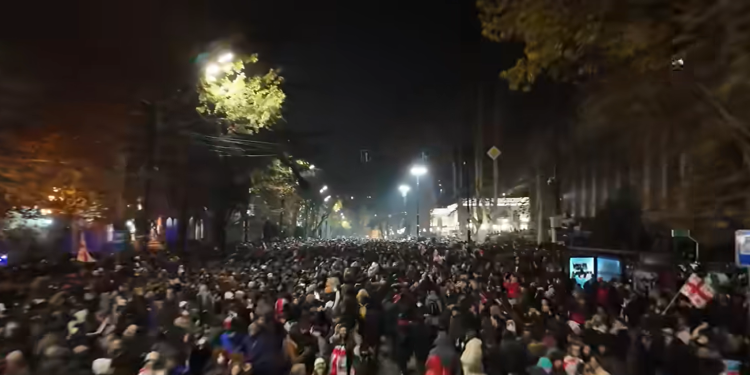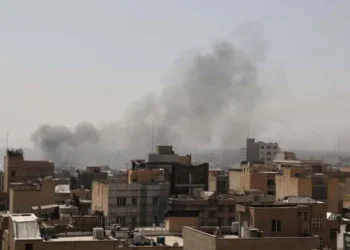Tuesday, December 3 marks the 6th night of protests countrywide, which began last week with Prime Minister Irakli Kobakhidze’s announcement that Georgia would not continue with its EU accession negotiations until 2028. This was followed by nightly police brutality to break up the street protests and, on Friday night, the US cancelling its Strategic Partnership with Georgia.
While some tactics have been adjusted on both sides, the protests so far follow a pattern: Liberty Square, Rustaveli Avenue and surrounding streets are closed at around 7pm; police and riot police gather en-mass in those closed areas – brought in by bus with their equipment; water cannons, fire engines and ambulances are positioned; and the crowd in front of the parliament building begins to grow as people come from work, bedecked with Georgian and EU flags, and bearing horns, whistles and lasers. Then, some hours later, a small number of frustrated and angry police and youth begin to attack each other – the police using water cannon and pepper spray; the youth throwing empty gas canisters, fireworks, bottles and eggs. The youth, in their fury, and as a sign of disrespect to the ruling authorities, commit acts of vandalism, and the police forces become increasingly aggressive in response. On different nights, the process of clearing the area around parliament has begun at different times, but it always ends at around 6.30am. The “clearing” is an intense and violent time, with riot police sustaining injuries from fireworks, while protesters – some of them innocent bystanders peacefully demonstrating – are targeted and pulled roughly behind the police lines while being beaten live on camera. Journalists have also fallen victim to the heightened emotions of the riot police.
Tonight promises to be no different. But the demonstrators – numbering some 200,000 in Tbilisi alone – far outnumber the police trying to shut them down. The question on everyone’s mind is how long will these nightly protests go on? Who will back down first? With an increasing number of civil servants publicly stating their no-confidence in the ruling party and its policies, time is ticking for Georgian Dream to make a move. We can only hope it will be a peaceful and democratic one.














